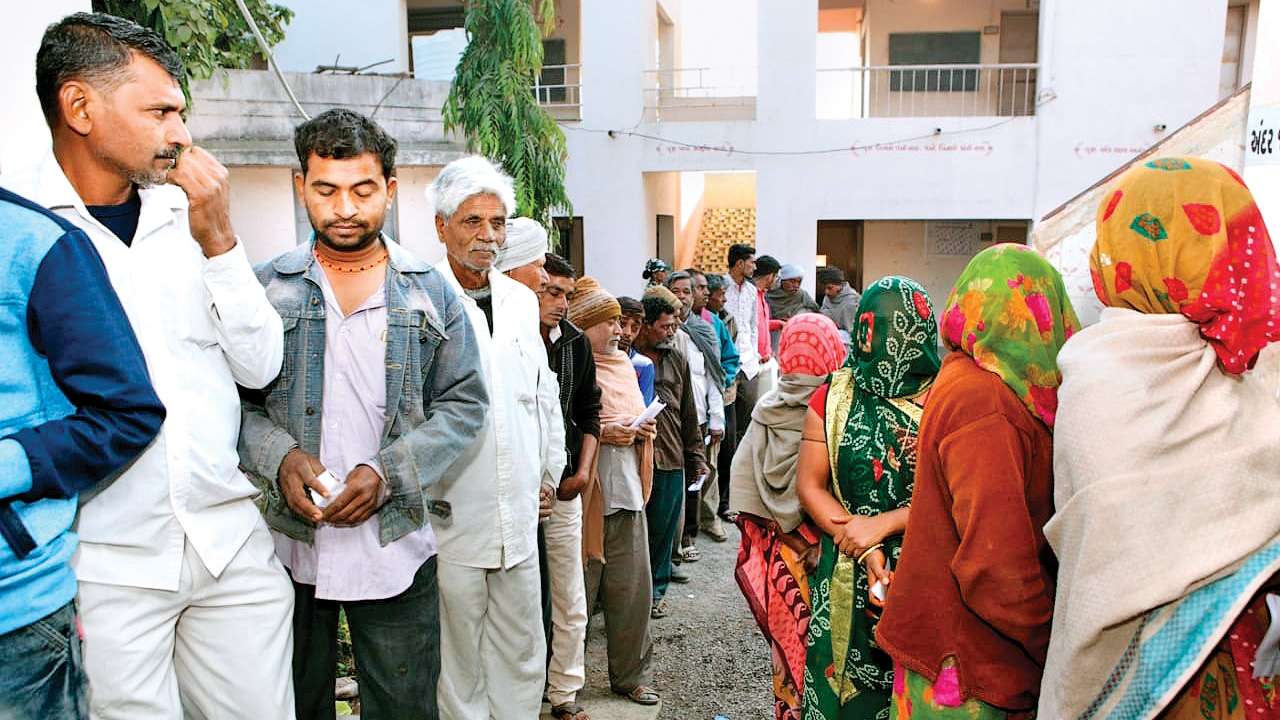
The rising expenditure on election campaigns and exponential increase in the number of poll surveys are eroding the very fundamentals of India’s free, fair and inclusive electoral system.
Sadly, little effort is being made to reverse the trend, as the political class has turned its back to the symptoms of decline in democratic behaviour.
This writer owes an apology to the Nation for making poll surveys an ‘instrument’, and for being the trend setter for pollsters in the country much before anyone else arrived on the scene, even though such surveys were initiated as an academic exercise, more than anything else.
It is now 45 years since poll surveys have become news media’s staple diet. During this period, we had seen some 10 Lok Sabha elections and over 100 assembly polls.
In the 2018 assembly polls, nearly Rs 100 crore was spend in conducting field surveys. In the upcoming 2019 Lok Sabha poll, an estimated Rs 500 crore is likely to be spent on surveys of all shapes and sizes, including those by parties for selection of candidates and by candidates for wooing voters.
It is interesting to pose the question: what have we gained from poll surveys? Is it possible to cite one benefit that poll surveys have offered to voters, to politics, governance or in bettering people’s representation or increasing transparency in the electoral process?
It is difficult to even claim that we are electing better candidates today than 25 years ago! Political parties have not become more reflective of the concerns of people and more representative in their outlook, since taking to poll surveys. Neither is it possible to claim that Indian electorate has become wiser and more selective in their voting preferences.
The real beneficiaries of poll surveys have been the news media, particularly TV channels, pollsters and poll agencies. And that too in pure monetary terms.
They certainly haven’t bettered their credibility. TV news channels have expanded their viewership base and pollsters as psephologists have become privileged and pampered handmaidens of political leaders.
As a matter of fact, poll surveys could be blamed for many of the ills that plague India’s electoral politics. Thanks to such surveys, election costs are constantly rising and freebies have no upper limit.
They have made entry of new talent even more difficult, making election and political parties more manipulative in the name of strategy.
These surveys could even be accused for deepening the divide between people, regions and communities. It is only too obvious that surveys have spread the 'note-for-vote' phenomena.
They have promoted public relations and the cult of image building beyond all reasonable proportions. As a result, the voter today does not view elections as a serious means for better governance, but as a gimmick.
By using some poll survey teams - not all - for snooping on voters or for canvassing, they are no longer viewed as independent or objective.
A typical poll survey is by no means a solo show. It involves a caucus of three – a research agency, a politician and news media. Together, they treat voters as gullible without revealing details and identities of people and any conflict of interest involved in the exercise.
These surveys have promoted false notions, suggesting that the larger the sample size, the more reliable are its findings. No field survey is actually required for the vague trends that finally emerge from such surveys.
India’s electoral system can never become truly free and fair, if poll surveys continue to be covered in the news media, as they are right now. Free and fair polls are as important as free media. They are two sides of the same coin.
In the past, some poll surveys turned out to be accurate more by chance than any particular methodology applied by the pollster.
Do poll surveys influence voting? Based on field surveys of shifting voting preferences, I had indicated more than two decades ago that poll surveys do marginally influence voting.
But television’s survey-based coverage today is a lot less influential than two decades ago. There are instances, however, of news media coverage of surveys that manage to swing cadres and potential candidates from one party to another.
Recently, a former campaign chief of President Donald Trump accused his boss for asking him to manage or manipulate poll surveys more than once during the 2016 presidential election campaign in the US.
In my 2010 book, “Poll Surveys in Media”, I described how such surveys were being commissioned, managed and analysed in India. News media is as biased as political parties, when it comes to hyping up poll surveys. This is also because media is directly or indirectly under the control of political leaders these days.
It is also clear that poll surveys have not led to any systemic research. There is no evidence of a large field research force engaged in poll surveys contributing to public policy in any way.
It would be fair to say that there was more research and analysis that went into public policy and governance 30 years ago than in the last 20 years. While independent research has declined in our public discourse and public policies, motivated and supportive social and political research is on the rise.
Author is a pioneer in applied social research in India, including conducting electoral studies